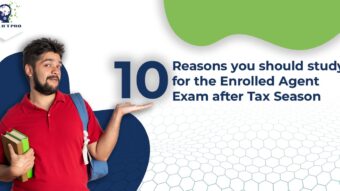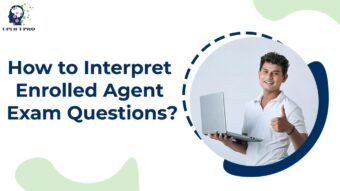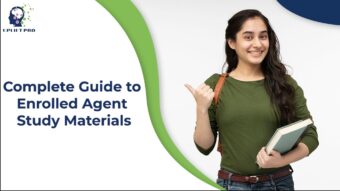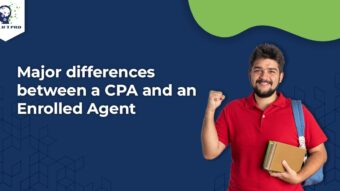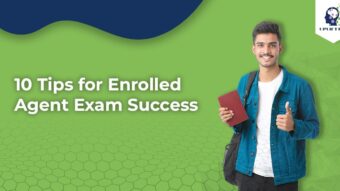10 Reasons you should study for the Enrolled Agent Exam after Tax Season | Uplift Professionals
An Enrolled Agent (EA) is a person who has earned the privilege of representing taxpayers before the Internal Revenue Service (IRS) by either passing a three-part comprehensive IRS test covering individual and business tax returns or through experience as a former IRS employee.
An EA is a federally-authorized tax specialist that operates to provide advisory services to American taxpayers about matters concerning the IRS. Achieving “EA” status is considered the highest credential awarded by the IRS and is legally recognized throughout all U.S states. To get the EA license, one must pass the three-part Special Enrolment Examination (SEE) conducted by the IRS through Prometric centres.
If you are a non-EA tax return preparer but want to obtain the prestigious EA tag for acquiring more skills and facilities to represent before the IRS, then start your EA journey just after the tax season is over. Why? For the following reasons.
-
Current Knowledge of Tax Laws
As the tax season has just been over, you already have the grasp of all the titbits of the existing tax status up to date- so high time to go for the EA course because you are already ahead.
-
Faster and Efficient Study
As you are already loaded with tax knowledge, your study time will be effectively less with increased efficiency to face the EA exam.
-
Time Management
Since you have just surpassed the hectic tax season, by this time, you are well versed about how to use your time for study by making an appropriate schedule. This helps a lot to clear the EA exam.
-
The Momentum
Since this is the continuation of your scheduled tax preparation, it is much easier for you to get the right momentum to study for the EA exam.
-
Early Start
While the EA exam does not start testing until May, you can still start your studies as early as March 1 if you have got the time to spare because you have the basic knowledge with you.
-
Unlimited Representation
Once you achieve your EA license within a year between two tax seasons, you will get the unlimited right to represent an unlimited number of cases before the IRS. That right was not with you in the previous tax season because you were not an EA then.
-
Recent Tax Laws
If you start your EA course just after the tax season is over, you have the advantage that you are already acquainted with the most recent tax laws or any amendments thereafter. This will be highly advantageous to crack the EA exam.
-
Adaptive Learning
Since you have already covered long working hours during the tax season, you are quite adapted to take the timely load. Here, you will be better than an average EA student who can not study for long hours at a stretch. This adaptive learning will help you to pass the EA exam easily in a shorter time.
-
Keeping the Motivation
Candidates for the EA exam have two years to pass all three parts of the exam, so a long break also means you risk losing points for sections you may have already passed. That is why starting preparation for the EA course just after the tax season is over is always beneficial.
-
Be an EA early
With your knowledge and required skill in tax return preparation, you can easily choose an appropriate EA review course with practice questions and some mentoring if required to get the EA credential much earlier than other EA aspirants.
With the above fact in mind, if you are really ready to earn your coveted EA credential, we are happy to help.
For further information/assistance, contact: www.upliftprofessionals.in/Enrolled_Agents

